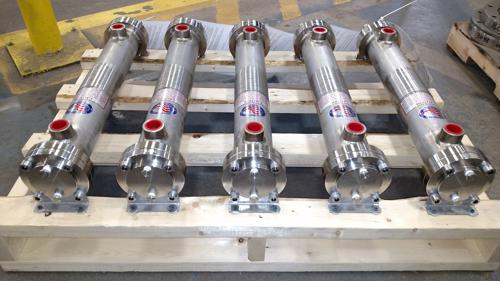After leaks, overheating is the most common concern for people working with hydraulic equipment. An overheated system can reduce the effectiveness and life span of oils in the system, and can degrade important polymer elements, like hoses and seals, Hydraproducts explained.
While most people who work with hydraulic systems know that overheating is bad, few fully understand the causes of this concern. It can be hard to find a solution to an overheating problem, and even more difficult to uncover the exact cause.
Defining overheating
Generally speaking, an overheated system is one that’s running at 180 degrees Fahrenheit or hotter, according to Machinery Lubrication Magazine. However, every system is unique. It’s important to monitor the viscosity of your oil as well as your equipment temperature to determine whether it’s overheating.
“An overheated system is one that’s running at 180 degrees Fahrenheit or hotter.”
The ability to identify overheating right away is a crucial skill, but it’s preferable to avoid the issue altogether. The only way to avoid overheating, by definition, is to ensure that the amount of heat your system is generating is less than the amount it’s dissipating.
Determining your system’s limitations
The first step in avoiding overheating is knowing your system’s capacity. Machinery Lubrication Magazine explained this can be done with a simple equation using the system’s continuous input power and its efficiency percentage.
The example provided by the source used a system that has a continuous input power of 100 kilowatts and an efficiency of 80 percent. In this case, the system needs to be able to dissipate at least 20 kilowatts at any given time.
Any time circumstances reduce the system’s ability to cool or dissipate heat, or increase the heat load above 20 kilowatts, overheating will occur. Given these facts, there are two ways to correct an overheating problem: Decrease the heat load, or increase the heat dissipation.
Decreasing heat load
If your system is overheating, there’s an underlying cause that may not always be immediately evident. The best way to avoid increasing heat loads is to ensure that every feature of your system – from the machines to the oil and seals within them – is in top condition.
Change out parts and fluids when they begin to degrade or otherwise go bad. Perform routine inspections to make sure you catch issues before they become operations-halting problems. Keep a regular maintenance and cleaning schedule as well.
Sometimes it’s not a buildup of debris or a skipped cleaning that causes overheating. Any leaks in your hydraulic system can have a negative effect on your operation as a whole.
“If your system is overheating, there’s an underlying cause.”
The main goal here is to ensure that your equipment is operating efficiently at all times. When your system is operating as it should, there are fewer chances for it to overheat.
Increasing cooling capacity
If everything seems to be consistently in order, but you’re still having trouble with overheating, it’s a sign that your system needs an adjustment. Your cooling system could be worn out. Be sure to regularly check all cooling system parts and their functionality so you know when to replace something.
Sometimes, your cooling system may just not have the right capacity for your hydraulic machinery. Don’t let this problem persist. One way to increase the dissipation rate is to add another oil cooler, Engineering Made Easy pointed out. With an added cooler comes increased ability to cool the system down before the temperature swings too high.
An overheated hydraulic system won’t do you, your business or your clients any favors. A major part of running an efficient operation is the ability to maintain the right temperature. Be sure you know the maximum heat your system can handle, and take steps to keep it in that range.
Remember, one important part of maintaining an efficient system is knowing when to replace critical equipment and components. When you need to replace your shell and tube heat exchanger, or add an oil cooler, reach out to the experienced heat exchange engineers at Enerquip

